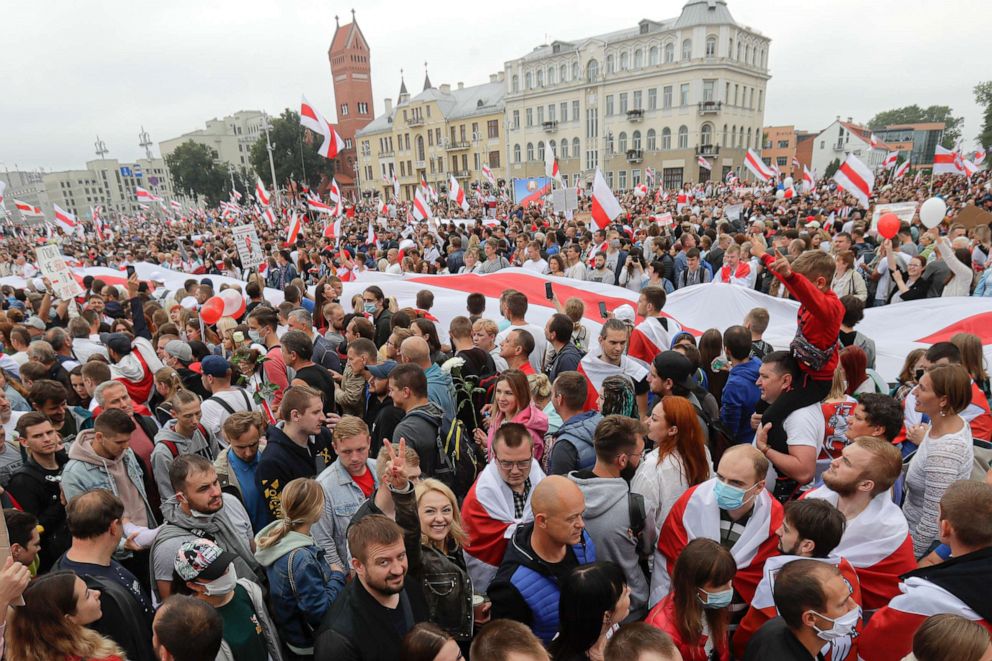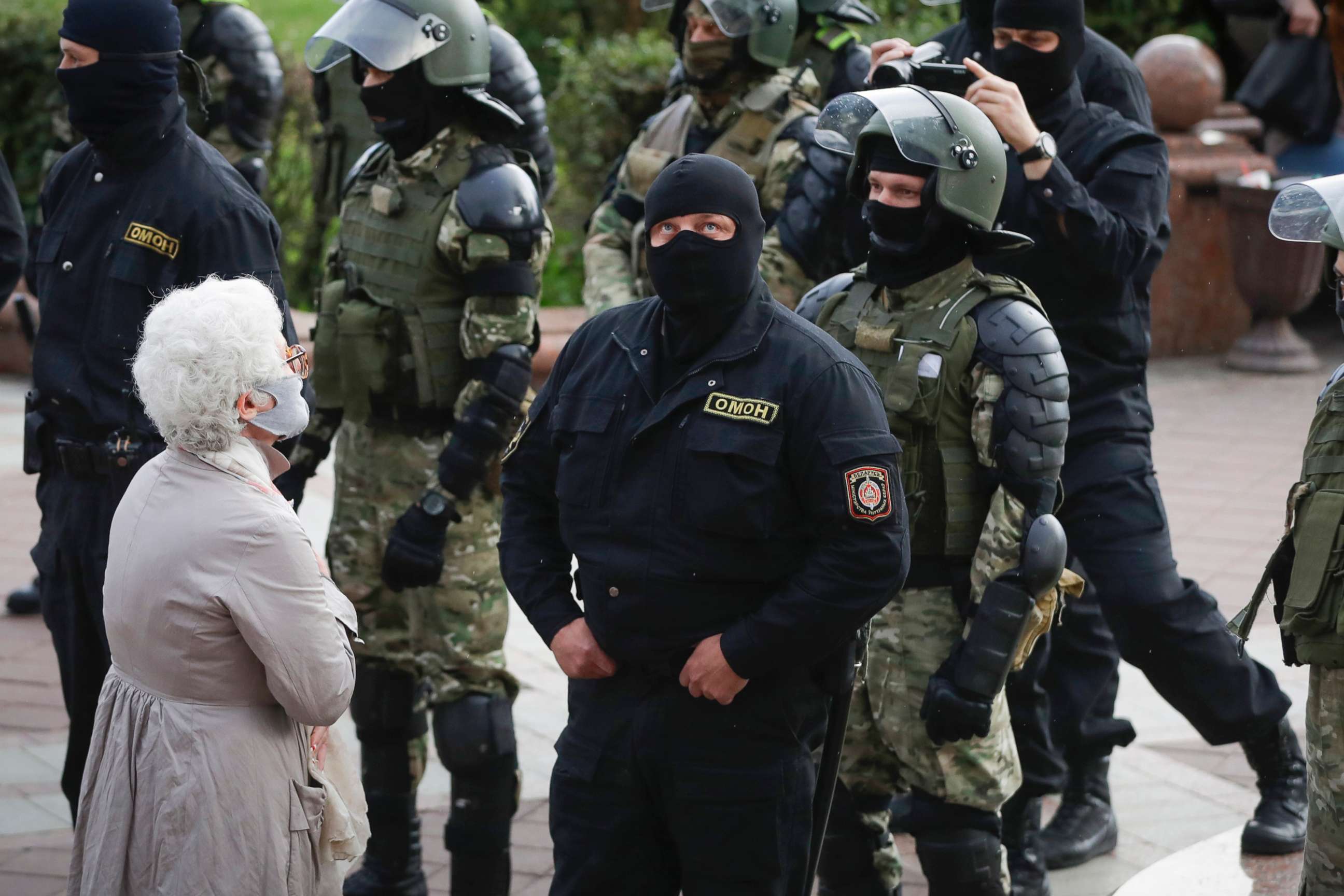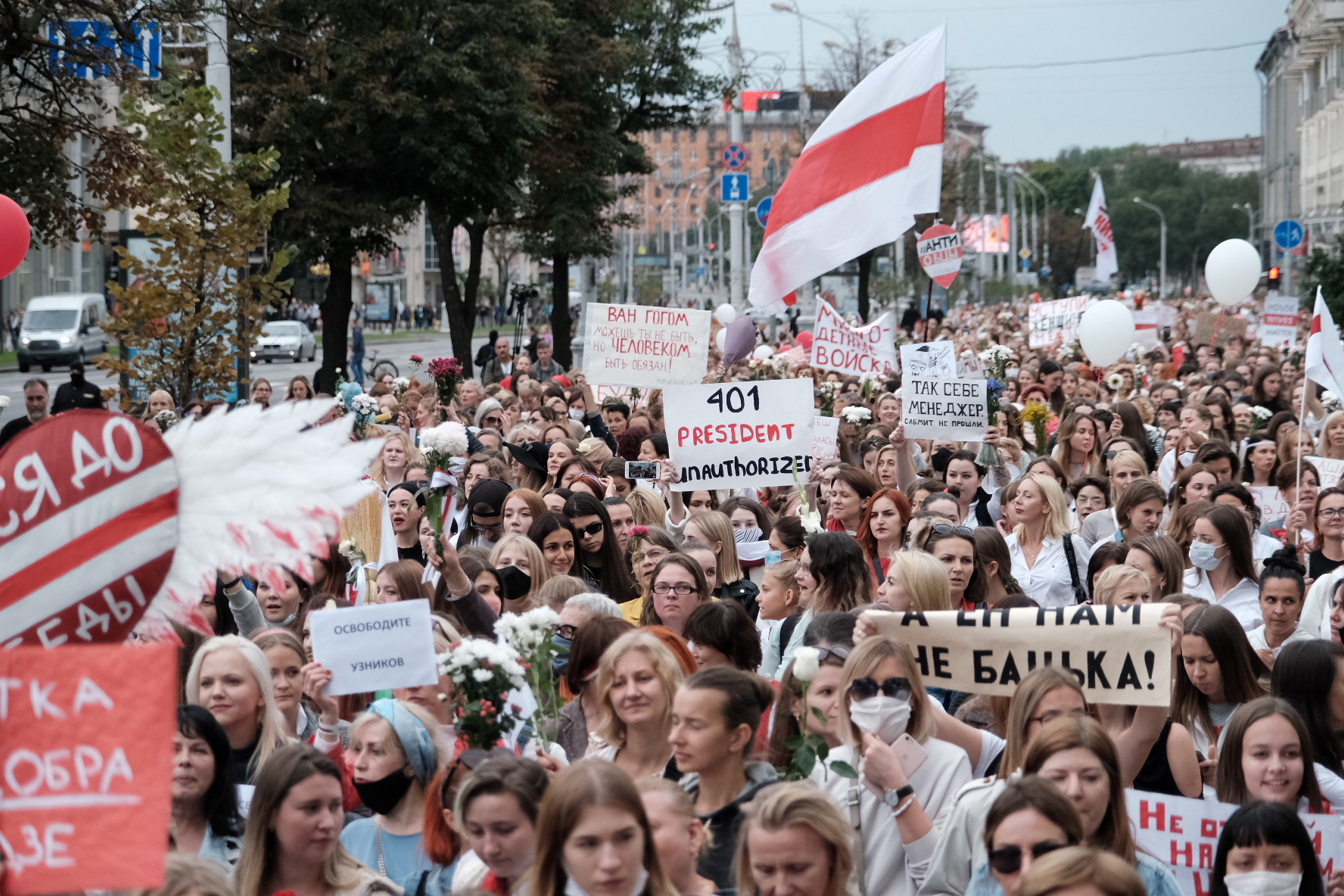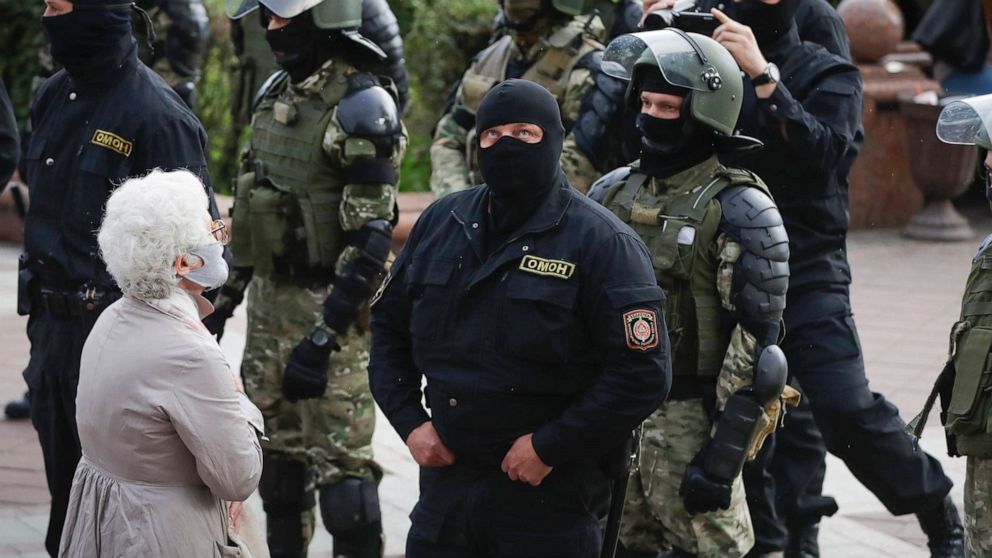Belarus bans most foreign media from working, as pressure grows on protesters
MINSK, Belarus -- Belarus authorities on Saturday revoked the press accreditation of journalists working for most foreign news organizations operating in the country in an apparent attempt to hinder coverage as security forces up the pressure on protesters seeking to push the country's longtime dictator Alexander Lukashenko from power.
Belarus' foreign ministry canceled the accreditation for many journalists working for most of the main international news agencies, including Reuters, The Associated Press, AFP, the BBC, the German and French public broadcasters ARD and RFI, the U.S. government-funded Radio Free Europe/Radio Liberty and several others.
Journalists from some of the news organizations said they received phone calls informing them of the decision, which was taken by a committee tasked with "preventing extremism." Two AP journalists and two from ARD, all Russian citizens, were deported on Saturday and a local Belarusian producer was charged and faces a court hearing on Monday. The ARD team were detained by plainclothes officers on Friday at their hotel.
Authorities have already largely blocked foreign reporters from entering Belarus, refusing for weeks to provide accreditations and turning back dozens of journalists who had sought to fly into the country covertly. Many of those stripped of their accreditations are Belarusian journalists based there full time. The decision makes it a crime for the reporters to work, carrying the risk of a fine or a potential prison sentence. In total, the accreditation for at least 17 journalists was revoked, according to the Belarusian Association of Journalists. That included two from the BBC and five from Radio Free Europe/Radio Liberty.
The BBC, AP and ARD issued separate statements strongly condemning the step.

"We condemn in the strongest possible terms this stifling of independent journalism. We call upon the Belarusian authorities to revoke this decision and allow our journalists to continue doing their jobs," the BBC said in a statement.
German Foreign Minister Heiko Maas said, "This attack on press freedom is another dangerous step toward more repression instead of dialogue with the population."
The move comes as security forces have appeared to step up their efforts to undercut the protest movement that has gripped Belarus now for three weeks, triggered by a contested presidential election and a brutal crackdown by police that followed it.
In the past two days masked riot police have returned at protests and since Thursday they have detained well over 200 people. On Thursday, over 40 journalists were detained near a demonstration and held for several hours. A small number of Belarusian journalists were charged with participating in the protests.
This week, authorities jailed two key opposition leaders for 10 days and summoned others for questioning, including 2015 Nobel Prize for literature winner Svetlana Alexievich, who was questioned as a witness in a criminal case on charges of illegal seizure of power.
The more aggressive moves followed the public warning from Russian President Vladimir Putin on Thursday that he could send in Russian security forces if protesters sought to violently remove Lukashenko. That was widely interpreted by the opposition and independent analysts as a signal that the Kremlin for now will not allow Lukashenko to fall.

The U.S. Embassy in Minsk demanded Saturday that Belarusian authorities cease "targeting journalists" and urged them to "demonstrate restraint." In a statement, the embassy called for the immediate release of those "unjustly detained" and for an accounting of those missing.
"We stand with the Belarusian people in their aspirations for a democratic, prosperous future and support their call for the Government of Belarus to carry out democratic reforms and respect human rights and fundamental freedoms," the embassy statement said. In a message seemingly directed at Russia, the embassy also affirmed the United States' "long-term commitment to support Belarus' sovereignty and territorial integrity" and its people's right "to choose their leaders and to choose their own path, free from external intervention."
Putin made another show of support for Lukashenko on Saturday. In a clip from an interview with state television, Putin reiterated Russia recognized Lukashenko's election and expressed doubts about European countries' decision to reject the vote's results.
Putin asked why international election observers from the Organisation for Security and Cooperation in Europe had not come to Belarus to monitor the vote. "It immediately makes us think that the stance on the results of this election was effectively prepared in advance," Putin said in the interview.
In reality, Lukashenko's government only invited the OSCE to send a monitoring mission when it was already too late for it to do so. The election produced a landslide for Lukashenko of over 80% amid allegations of flagrant ballot rigging.
The clampdown on the media came ahead of mass protests again planned for Sunday in Minsk and in other cities. For the past two Sundays, vast, historic protests have flooded the capital, with crowds estimated to be well over 100,000 people.
The protests have followed a pattern so far with the massive demonstrations rocking the government on Sundays and then quietening during the week, as authorities move to shore up their grip. A few thousand people have gathered on Minsk's main Independence Square most nights and small, guerrilla protests -- people standing in lines along roads or cycling with flags -- spring up during the days. Another protest has seen hundreds of people gather most days outside the Yanka Kupala National Academic Theatre where dozens of staff were fired or forced to resign this week.

Around 2,000 women joined a women's march through central Minsk on Sunday. The women, chanting, "This is our city," and, "We believe, we can, we'll win," many carrying white flowers and the red-and-white flags of the protest, walked in columns around part of the center, shadowed by black-clad, masked riot officers and large armored police wagons. The police sought to block the women several times and detained several people, but did not attack them. In a video shared on social media, women surrounded plainclothes agents trying to lead away a journalist in a press jacket, forcing them to back down.
Since early on, all-female protests have become one of the tactics of the demonstrators as police have targeted men more immediately for arrest, though thousands of women were still detained in the early days of the protests. Women have become the face of the uprising, which has become headed by three female leaders, including Lukashenko's main opponent in the election, Svetlana Tikhanovskaya. At Saturday's march, the only one of the three women still in Belarus, Maria Kolesnikova, made an appearance, greeted with delighted cheers from protesters.
Lukashenko has refused to negotiate with the opposition and has pledged to end the unrest. Last Sunday, he appeared in front of riot police, brandishing an assault rifle and he has accused protesters of working on behalf of NATO.




